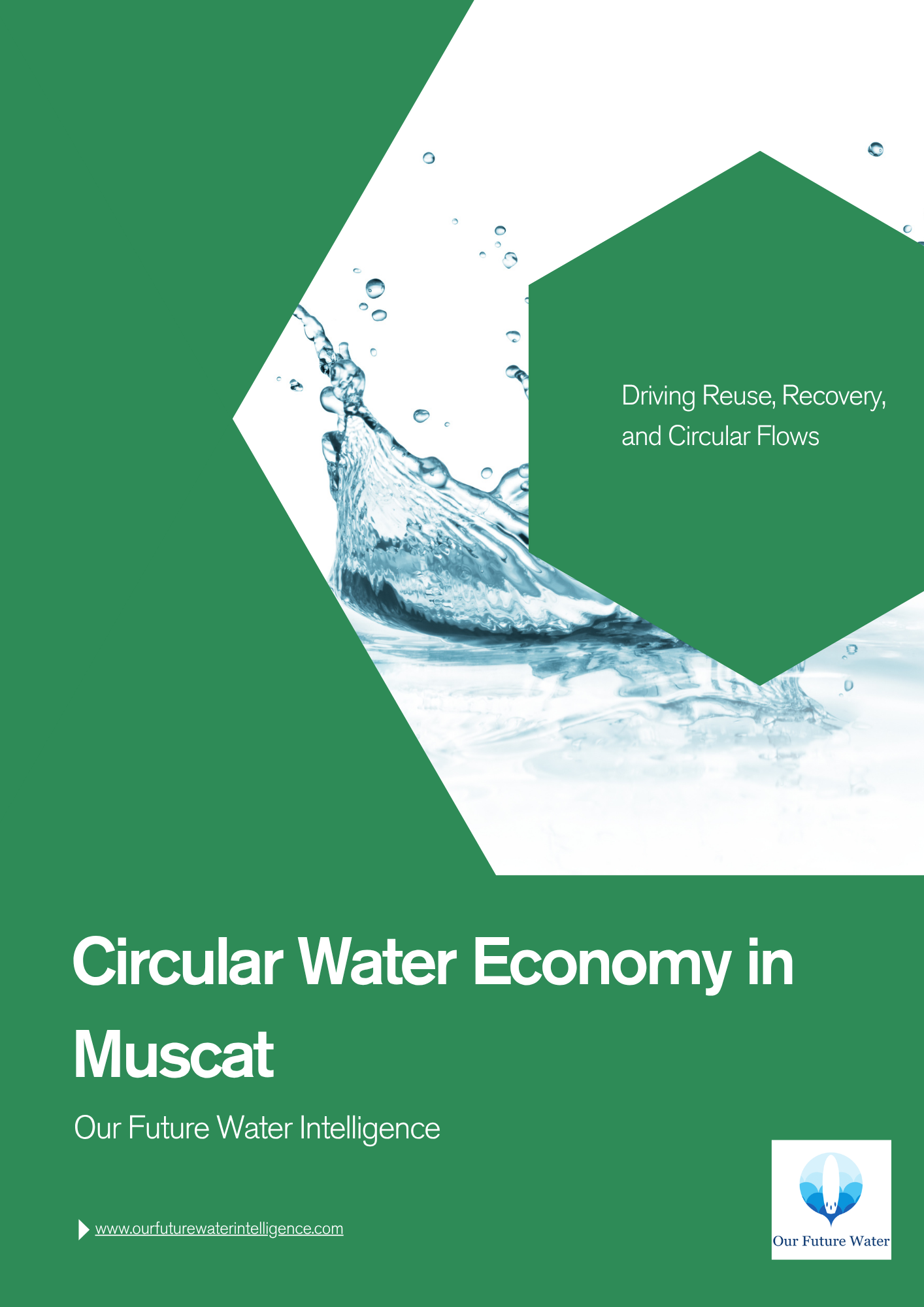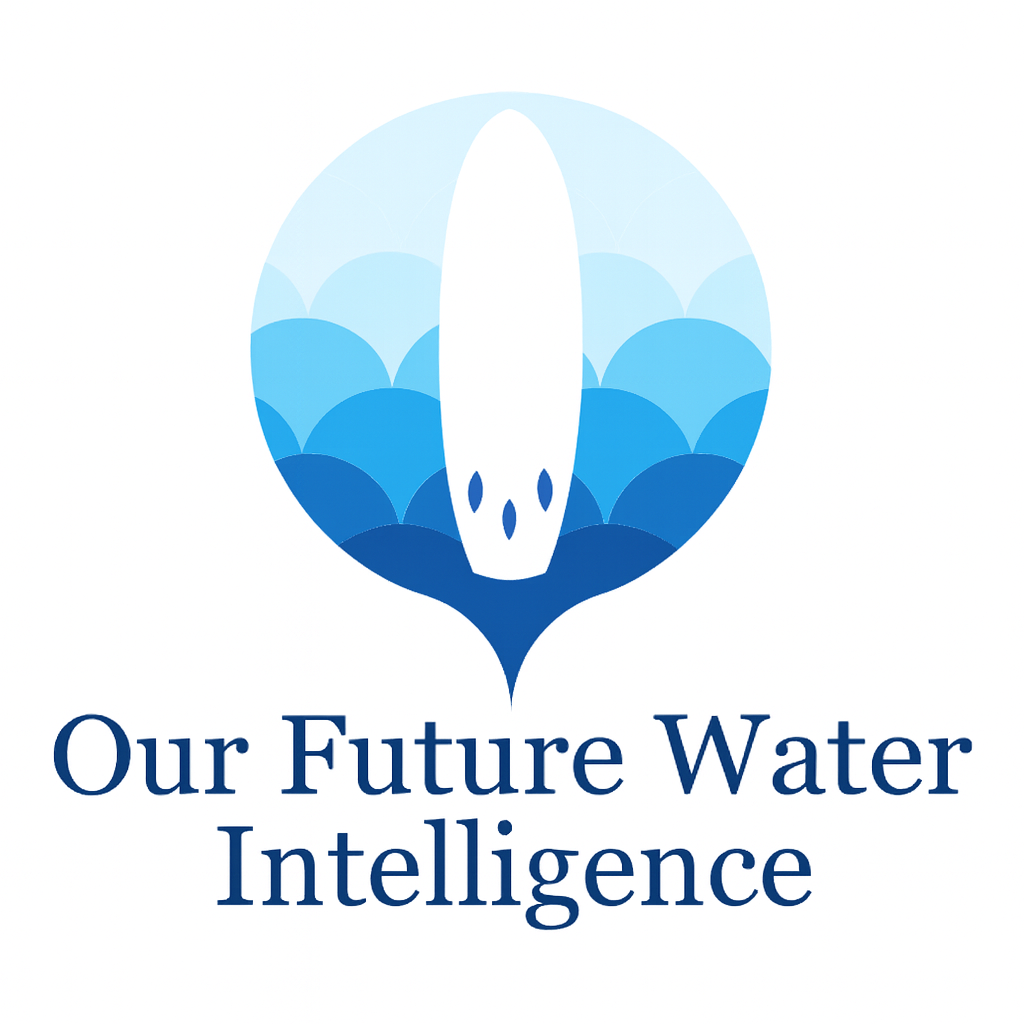
Circular Water Economy in Muscat
Circular Water Economy in Muscat
System-level analysis of Muscat’s transition from a desalination-dependent, linear model to a circular water economy anchored in the 5Rs framework and Oman’s Net Zero 2050 and Oman Vision 2040 commitments.
Target Audience
- Utility Executives: Benchmarking circular water economy implementation, NRW reduction, and desalination–reuse integration in hot, arid capitals.
- Regulators & Policymakers: Stress-testing tariff reform, Net Zero 2050 alignment, and Oman Vision 2040 delivery through 5Rs-based governance.
- Infrastructure Investors: Analysing OMR 700M+ capital pipelines, PPP structures, and sustainable finance frameworks for circular water assets.
Report Deliverables
- End-to-end mapping of Muscat’s 5Rs (Reduce, Reuse, Recycle, Recover, Restore) and flagship circular projects across supply, demand, and resilience.
- Quantified NRW, desalination, treated effluent, and CAPEX trajectory to 2036–2040, including Ghubrah III IWP and Wadi Dayqah Dam Water Purification Plant.
- Actionable playbook for replicating Muscat’s CWE model in Gulf and global growth cities, including digitalisation, green desalination, and resource recovery pathways.
The Five Strategic Pillars
Operational Excellence & Resilience
Muscat offers a replicable framework for arid, coastal cities facing extreme water scarcity, rapid urbanisation, and increasing climate shocks from wadi floods and tropical cyclones. By maintaining very high treated effluent utilisation (86% in 2022), expanding desalinated capacity toward 2 million m³/day nationally by 2030, and deploying nature-based flood solutions such as the Al Ansab Lagoons and 14 protection dams, Muscat demonstrates how circular design can simultaneously secure supply, reduce carbon intensity, and strengthen resilience.
Committed through 2040 to modernise desalination, expand wastewater and treated effluent networks, rehabilitate high-loss pipelines, and deliver flood-resilient drainage, including projects such as the 300,000 m³/day Ghubrah III IWP and the OMR 55 million Wadi Dayqah Dam Water Purification Plant.
Expert Briefing: FAQs
How is Muscat’s circular water transition funded?
Muscat’s circular water economy is financed through a mix of cost-covering tariffs, Public-Private Partnerships for large desalination and purification assets (such as Ghubrah III IWP and Wadi Dayqah BOO schemes), and an OWWSC Sustainable Finance Framework that enables Green, Blue, and Social bonds, sukuk, and loans.
What defines the “circular water economy” approach in Muscat?
The strategy embeds the 5Rs across the system: reducing demand and NRW through tariffs and smart metering, reusing stormwater and dam storage, recycling treated effluent to reach 100 million m³ annually by 2030, recovering energy and nutrients via sludge-to-biogas and compost, and restoring natural buffers through wadi flood protection and drainage master planning.
How does digital intelligence improve Muscat’s circular performance?
High-frequency data from more than 320,000 smart meters, SCADA-linked sensors, drones, and satellite imagery enables early leak detection, prioritisation of rehabilitation in high-loss zones, and tracking progress toward cutting NRW from 39.6% in 2023 to 10% by 2036 while maintaining over 96% continuity of supply.
Choose options

ARTICLES

Yorkshire Water Nature First urban drainage and wetlands strategy
Yorkshire Water's Water Utility of the Future programme uses a Nature First commitment, wetlands, blue‑green streets, and digital intelligence to cut storm overflows and build climate resilience ac...
Read more
Yorkshire Water Resource Decoupling and Green Energy Transformation
Yorkshire Water is decoupling service from emissions by targeting 40% renewable self-generation, up to 120 MW of solar and expanded biogas-to-biomethane projects, turning key treatment sites into i...
Read more
Yorkshire Water Adaptive Planning and Non-Stationary Climate Resilience
Yorkshire Water is using adaptive planning, the Yorkshire Grid and targeted redundancy projects to manage a non-stationary climate, strengthen drought and power resilience, and protect customers fr...
Read more